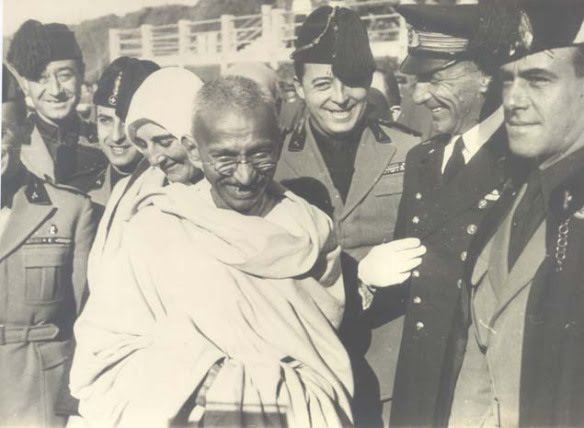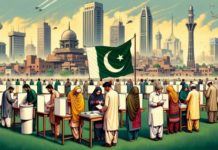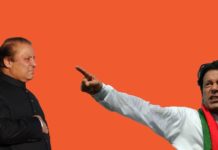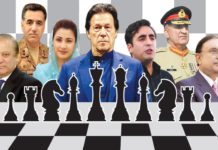When Burmese leader Aung Sang Su Kyi was recently released, she paid rich tributes to leader of the Indian liberation movement, Mahatma Gandhi.
Not very long ago, Barack Obama said if given a chance he would like to have a meal with his “real hero” Mahatma Gandhi, although the apostle of peace did not eat a lot.
Obama’s response came to a question from a ninth grade student at the Wakefield High School in Arlington, Virginia, who asked him if he could have dinner with anyone, dead or alive, who it would be.
Obama’s tribute to Gandhi was hypocritical as well as ironical. Hypocritical in view of his Afghanistan war and dronning of Pakistan. Ironical, because Gandhi is the finest personification of this hypocrisy.
Revered as Mahatma (great saint), a moniker Rabindra Nath Tagore bestowed upon him, Gandhi is held in great esteem almost across the world. Hence, many a Gandhi-bhagat would shake their heads in disbelief if they find out that thus spoke Ahisma-prophet: ‘There can be no partnership between the brave and the effeminate. We are regarded as cowardly people. If we want to become free from that reproach, we should learn the use of arms.’
Prophet continues: ‘…we should have the ability to bear arms and use them….If we want to learn the use of arms with the greatest possible dispatch, it is our duty to enlist ourselves in the Army’.
These saintly commandments were addressed to Indians during the First World War as Gandhi took upon himself to play the recruiting agent to enlist Indians for imperial British army busy fighting the war. Perplexed Indian protested: how could a man of non-violence participate in war?.
A Mahatma is good for nothing if he can not clarify such worldly confusions. Thus replied Mahatma: ‘I accept the benefits and protection of the British Empire, I have not tried to destroy it, why should I allow it to be destroyed?’
Among the worldly benefits ethereal Mahatma reaped were two war medals and the rank of Sergeant Major for his services in helping white armies crushing Zulu rebellion and winning Boer war in South Africa.
Hence, ‘Gandhi was the best policeman the Britishers had in India’, declared Member Parliament Ellen Wilkinson, after her official visit to India in 1932.
Our Ahisma-preaching Mahatma did not lend support to imperial wars only. Though he did not live long to see India going nuclear or capturing East Pakistan yet India had locked horns with Pakistan over Kashmir before he died. Instead of resisting Pakistan Ahisma-style, Gandhijee blessed Prime Minister Nehru’s decision to dispatch Indian troops to Srinagar. The Ahisma advice: ‘Discard every trace of violence from your heart,’ was good only when the purpose was to ‘give absolute protection to every English man, woman and child’.
Contradictory? Yes, but Viceroy of India Lord Irwin explains this contradiction: ‘He is a curious little devil-always working for an advantage. In all his actions I see the ‘bania’ (money lender, which Gandhi was by caste) predominating over the saint’.
Hence, he could one day call himself ‘an anarchist, but of another type’ while next day could visit Italy on Mussolini’s invitation where ‘anarchist-of-another-type’ could call upon the Duce and attended Balilla’s (Fascist Boys) demonstration.
Likewise, he could call himself a Hindu, Muslim, Christian, Buddhist, Jew. whatever. Err….there was one exception. He never called himself a (godless) Bolshevik. On the contrary, he claimed ‘If anything can possibly prevent this calamity (Bolshevism) descending upon our country, it isSatyagraha (non-violence)’.
Declared a ”fake prophet” by Leon Trotsky, Gandhi he could champion the cause of Harijans (untouchables) and broke the taboos by visiting their slums or taking bath at Harijans’ well. However, he would never eat out of untouchables hands after all being Sanatni (fundamentalist) Hindu ‘I believe in the Varnasharam Dharm (caste system).’
His saintly heart ached for women too. He encouraged women to educate and dwell his Asharam. But girls got to be careful not to attract boys elseMahatma would have them head-shaved. For proletariat and peasantry, the saintly advice was: ‘capital and labour need not be antagonistic to each other.’. After all, ‘Even in the most perfect world, we shall fail to avoid inequalities, but we can and must avoid strife and bitterness. There are numerous examples extant of the rich and the poor living in perfect friendliness. We have but to multiply such examples.’ Unfortunately, no report of ‘voluntary abdication’ by any ‘model landlord’ or multi-millionaire reached Gandhi until his death at his multi-billionaire disciple’s Birla House.
But didn’t he live like poor? True. But, as was quipped those good old days, ‘it costs a great deal of money to keep Gandhijee living in poverty’. And ‘great deal of money’ was ensured by Birlas and Tatas (Indian Rockefellers). This money not merely ensured to cover Gandhi’s ‘living-in-poverty’ costs but also guaranteed that radicals like Subhash Chandra Bose are cowed. Reverently called Netaji, Left-wing Bose, twice got elected president of Congress party defeating Gandhi’s faction. But Birla/Tata money helped Gandhi organise a coup. Bose, resigned Congress’ presidentship, fled India and formed Indian National Army (INA).
Thousands of Indian soldiers in British army as well as Indian youth joined the INA. His popularity far surpassed Gandhi’s during the WW II as was evident by his election to the slot of Congress president. Bose’s legend as INA commander was not the first challenge that Gandhi faced as India’s ‘undisputed’ leader. In early 1930s, 23-year-old Bhagat Singh eclipsed Gandhi and his Congress by challenging British colonialists through his Hindustan Socialist Republican Army. Hanged to death, Bhagat Singh is to Indian sub-continent what Che is to Latin America. His popularity, during his short-lived struggle far surpassed Gandhi. As a matter of fact, it was the revolutionary and militant struggle inspired by Bhagat Singh and subsequently INA that liberated India. The text-book ‘cliche’ that Gandhi’s Ahisma forced British colonial masters to quit India is not merely trivialising of India’s (and Pakistan’s) revolutionary heritage but also an ignorant historical reductionism.








